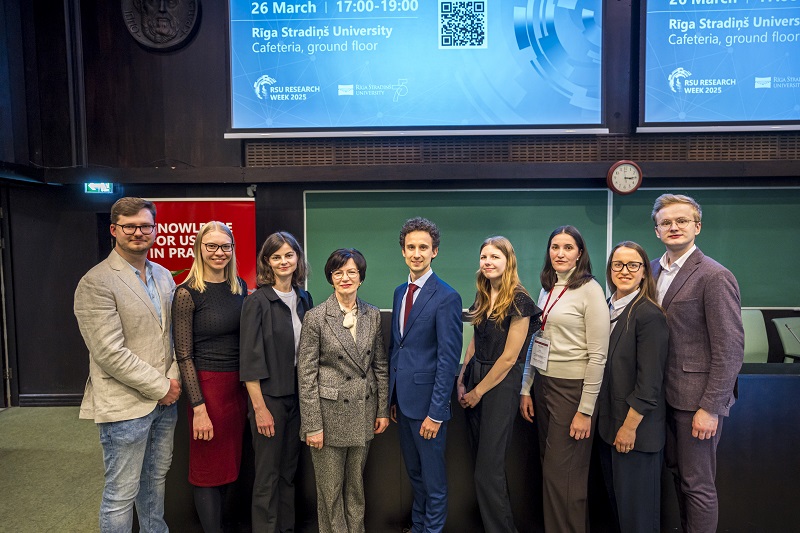Reviving a forgotten cure: phage research gains momentum in Latvia
Once considered a niche or even forgotten field, phage therapy is now making powerful strides—and Latvia is steadily making its mark in this evolving field.
This shift was evident at Rīga Stradiņš University (RSU) Research Week 2025, held from March 26–28, where global leaders gathered to share their work tackling antimicrobial resistance. The spotlight fell on phage therapy during a dedicated session titled “Phage Therapy: A Forgotten Cure Rediscovered?”—a session that underscored how far this once-overlooked treatment has come.
Chaired by Latvia’s Prof. Uga Dumpis and Finland’s Asst. Prof. Saija Kiljunen, the session brought together renowned researchers, including Prof. Krystyna Dabrowska (Poland) and Dr. Jean-Paul Pirnay (Belgium). Dr. Pirnay, a leading voice in bacteriophage science, shared visionary developments in personalised phage therapy—highlighting synthetic production methods that could allow rapid, targeted treatment of drug-resistant infections. The approach represents a shift away from traditional antibiotics toward customised, efficient solutions tailored to individual patients.
Despite its potential, phage therapy remains underutilised across the European Union, still classified as an experimental treatment. Obstacles such as clinical trials, regulatory complexity, the need for patient-specific phage selection, and bacterial resistance to phages remain challenges.

The phage research group during RSU Research Week 2025 (left to right): Dr.biol.Ņikita Zrelovs, Laima Sevastjanova, Renāte Rūta Apse, prof. Juta Kroiča, Asst.Prof.Kārlis Rācenis, Lise Berentsen, Dr.sc.ing.Līga Stīpniece, Dace Rezevska, and Sandis Mauriņš.
Latvia’s own researchers are contributing to this field. RSU’s Phage Research Group, headed by Prof. Juta Kroiča and Asst. Prof. Kārlis Rācenis, is at the forefront of applied phage science in Latvia. Their team is conducting research into combating multidrug-resistant pathogens like Klebsiella pneumonia, exploring phage activity in biofilms, phage-antibiotic synergy, and even creating phage-impregnated biomaterials.
The participation of global phage therapy leaders, alongside the promising research underway at RSU, highlights Latvia’s growing engagement in this field. Once overlooked, phage therapy is now being rediscovered—and Riga is becoming a meaningful part of this broader international effort.

